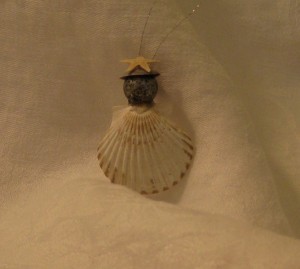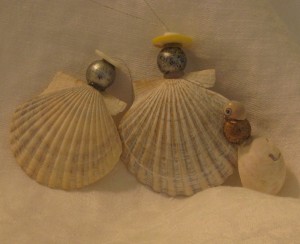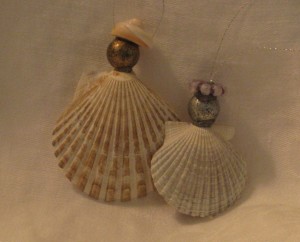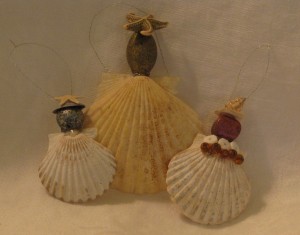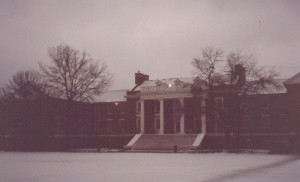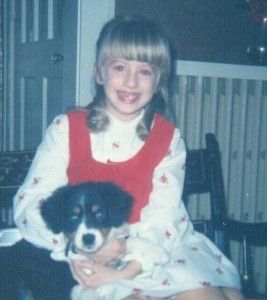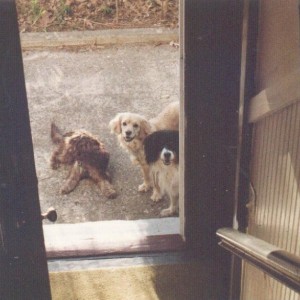My husband’s family has vacationed in Cape Cod since he was a little boy. They cherish their time on the Cape. It’s a Family Tradition marked by capital letters and exclamation points. They will battle illness and adversity to reach the Cape. Fortunately, I appreciate the unique environment as much as they do. We began taking our daughter there when she was two. Her love of the Cape was immediate, as natural to her as breathing. H’s parents were immensely pleased with the discerning wisdom of their young granddaughter.
Our quaint little rental cottages look out across the bay to the Pilgrim Monument in Provincetown and the lighthouse at the tip of the Cape. We feel privileged to spend time each summer in this transitional, luminous, glorious spot. As in such magical places as Cornwall, Mont St. Michel and Key West, the expected balance of land and water has shifted. The land resembles a narrow ribbon drifting on the water. The sky is vast. The light is awe-inspiring, ever-changing.
The land itself is in constant flux. I was unprepared for the quiet drama of the bay. Growing up, my beach experiences were limited to the Gulf of Mexico and the Atlantic coasts of Georgia’s islands. Both are beautiful areas, but they lack the sharply defined tidal contrasts of Cape Cod Bay. Every year without fail, soon after we arrive, a knock at our screen door signals Grandpa’s delivery of our copies of the tide chart, our guide to daily life. At low tide, the flats extend nearly as far as the eye can see. The shallows glimmer like silver in the shifting sunlight. When the tide begins to rush in, the change is at first almost imperceptible. Before long, though, the water is swirling around us, its determined, unstoppable force clearly evident. At least once every day, we watch as the expanses of sand shrink into islands, smaller and smaller, before they become completely submerged again.
The bay is not a prime beach for shelling, but occasionally it offers up its particular treasures. Every so often, during an especially low tide, scallop shells dot the flats like pale, muted jewels, their colors subtle and austere. Naturally, my daughter and I collect them. Over the years we had acquired several sand pails full before we discovered an ideal, simple way to transform the shells into appropriate mementos. With the addition of a few beads and smaller shells, they became Christmas angels. (Once again, the hot glue gun allowed us to turn out a host of ornaments quickly and easily.)
Our little angels keep Cape Cod with us during the off-season. The medieval pilgrimage connotations of the scallop shell give the angels a certain dignity and make them all the more evocative. One of the world’s first souvenirs, the scallop shell became the emblem of the pilgrimage to St. James of Compostela, the several routes of which stretch through the mountains of France to northern Spain. Tourism on a grand scale was born in these pilgrimage routes, and the Way of St. James continues to attract pilgrims, many still on foot. Medieval pilgrims were, to some degree, tourists, just as many of today’s tourists are, in a sense, pilgrims. For travelers of the eleventh or the twenty-first century, whether navigating the perils of wilderness paths or the trials of Interstate 95, the goals of the journey are similar and elemental: an escape from the daily routine, the promise of adventure, a firmer grasp of life’s real meaning, and the opportunity for spiritual renewal. I love it that such richness of meaning is tied up neatly in the humble shell angels on our Christmas tree. *
*One final, fitting point of interest: our scallop shells wash ashore near the place where our country’s first pilgrims landed. As most of us learned and later forgot, the Mayflower’s initial stop in the new world was in what is now Provincetown Harbour.

